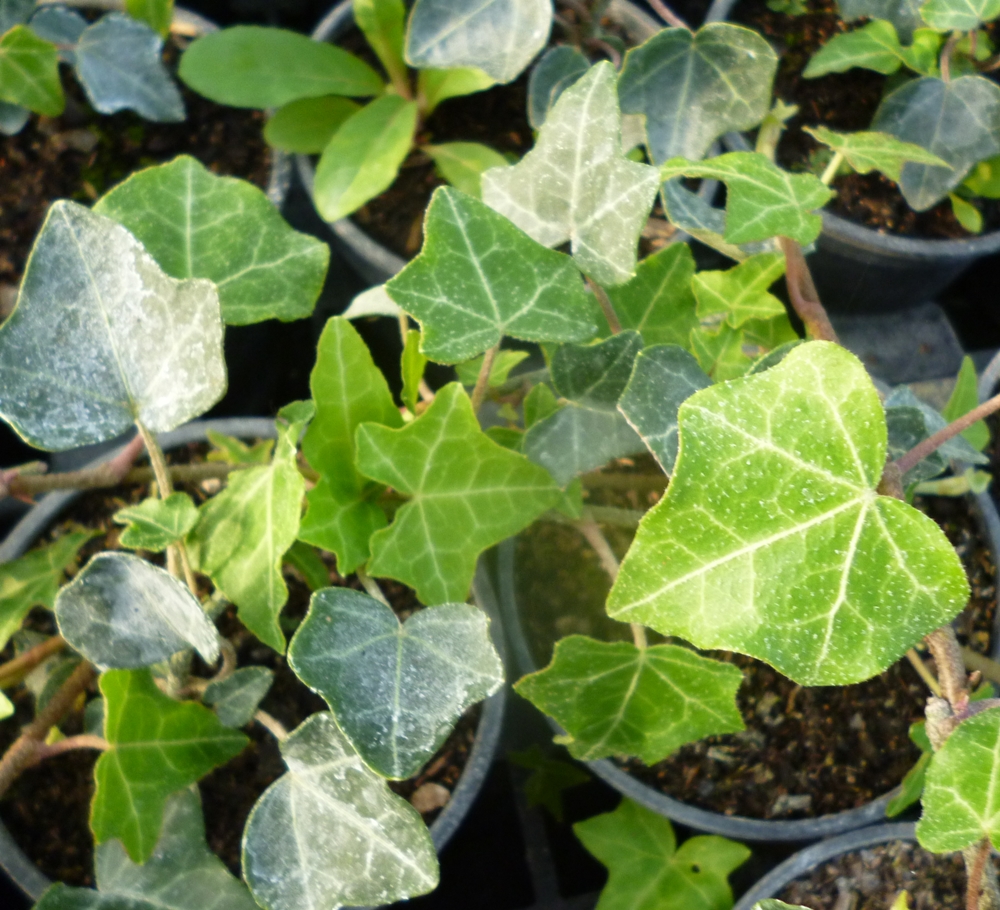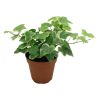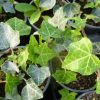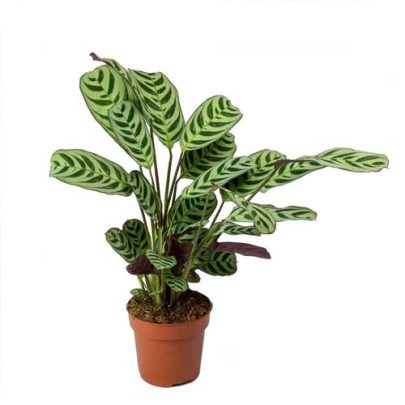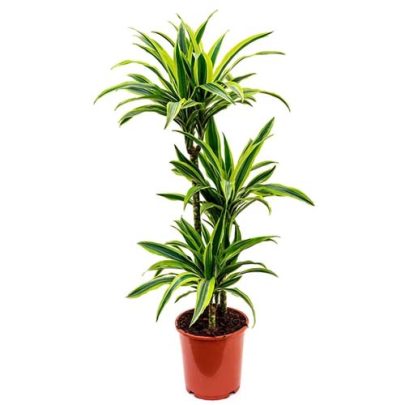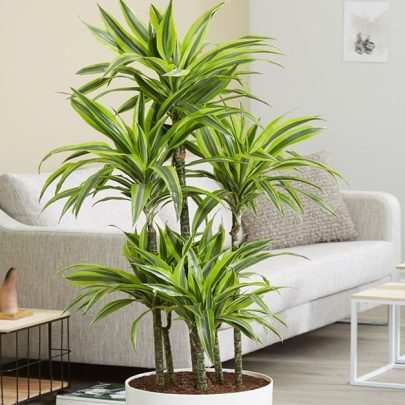Plant Care
Pour 2 cup or 500ml once every week only when the soil begins to dry out. Water in the early morning or late evening when temperatures are cooler.
Bright indoor light or indirect sun. 6 hours to 8 hours
18?C to 25?C
NPK Fertilizer Tabs or Baby Bio Plant Food or Fast Green Fertilizer
Plant Bio
The Hedera helix ‘Variegata’ is native to Europe and commonly called Pittsburgh Ivy, English Ivy or just Ivy. This evergreen vine or ground cover has small to medium ivy or lobed shaped variegated leaves with a heart-shaped base. It attaches itself by aerial rootlets to walls and other surfaces such as rockeries or trees. The Pittsburgh Ivy is easy to grow, hardy and versatile. Because of the Pittsburgh Ivy’s climbing and vining habits, they look great in a hanging basket, greenwall or trailing down a feature wall.
Growing ivy indoors isn?t difficult as long as you provide what the plant needs. The most important part of indoor ivy plant care is light. All true ivies need bright light. Variegated cultivars can take medium light, but be aware that their variegation will become less pronounced in less light. When watering your ivy, always check the soil before adding water. Ivies prefer to be kept slightly on the dry side, so let the soil dry out some (dry to the touch on top) before you water your ivy plant again. Also, make sure that your plant has excellent drainage, as ivy does not like to be in standing water or overly wet soil. Caring for ivy plants should also include regular fertilizing. Fertilize your ivy about once a month in the spring and summer with a water soluble, nitrogen-rich fertilizer. Do not fertilize in the winter, as this is the ivy?s dormant period and the fertilizer may do more harm than good at this time. Ivy houseplants benefit from periodic washing to remove dust and pests from their leaves. To wash your ivy plant, simply place the plant in the shower and allow the water to run over the plant for a few minutes.



